Discover the authentic charm of this traditional Maldivian island in Alifu Dhaalu Atoll
Located in Alifu Dhaalu Atoll, Dhangethi Island is a charming local island that offers visitors an authentic glimpse into traditional Maldivian life. This picturesque island combines natural beauty with genuine cultural experiences, making it an ideal destination for travelers seeking to explore beyond the typical resort experience.
What makes Dhangethi special is its welcoming community, pristine beaches, and vibrant marine environment. The island has gradually embraced tourism while maintaining its cultural integrity, creating a perfect balance between authentic experiences and visitor comfort. Its relatively small size creates an intimate atmosphere where visitors can easily connect with locals and experience the true essence of Maldivian island life.
With its growing but still modest tourism infrastructure, Dhangethi provides an opportunity to experience the real Maldives at an affordable price. Whether you're interested in snorkeling the colorful house reef, exploring the island's unique culture, or simply relaxing on uncrowded beaches, Dhangethi Island offers a genuine Maldivian experience that larger, more commercial islands cannot match.
Dhangethi Island is situated in the southern part of Alifu Dhaalu Atoll (South Ari Atoll), approximately 96 kilometers southwest of Male. The island is positioned along the eastern edge of the atoll, providing it with both protected lagoon waters and access to deeper channels rich in marine life.
This strategic location offers Dhangethi diverse marine environments, from calm lagoons perfect for swimming and snorkeling to deeper areas where larger marine species can be spotted. The island's position also provides it with beautiful beaches, particularly on its eastern side.
Dhangethi Island offers visitors a genuine glimpse into traditional Maldivian island life that has evolved over generations while maintaining its core cultural values. The island's community preserves many traditional practices that provide insight into the rich heritage of the Maldives.
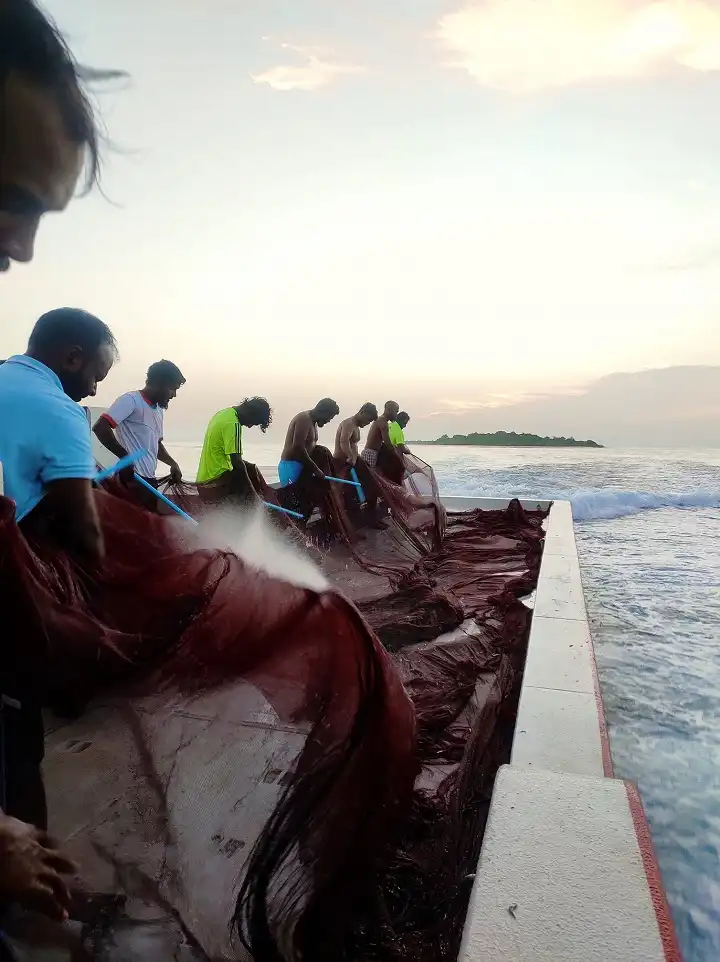
Fishing has been the backbone of Dhangethi's economy for centuries. The island is known for its skilled fishermen who practice traditional pole-and-line tuna fishing, a sustainable method passed down through generations.

The island has preserved traditional crafts including boat building, lacquerware production, and mat weaving. Some families still create these handmade items using techniques that have remained largely unchanged for centuries.
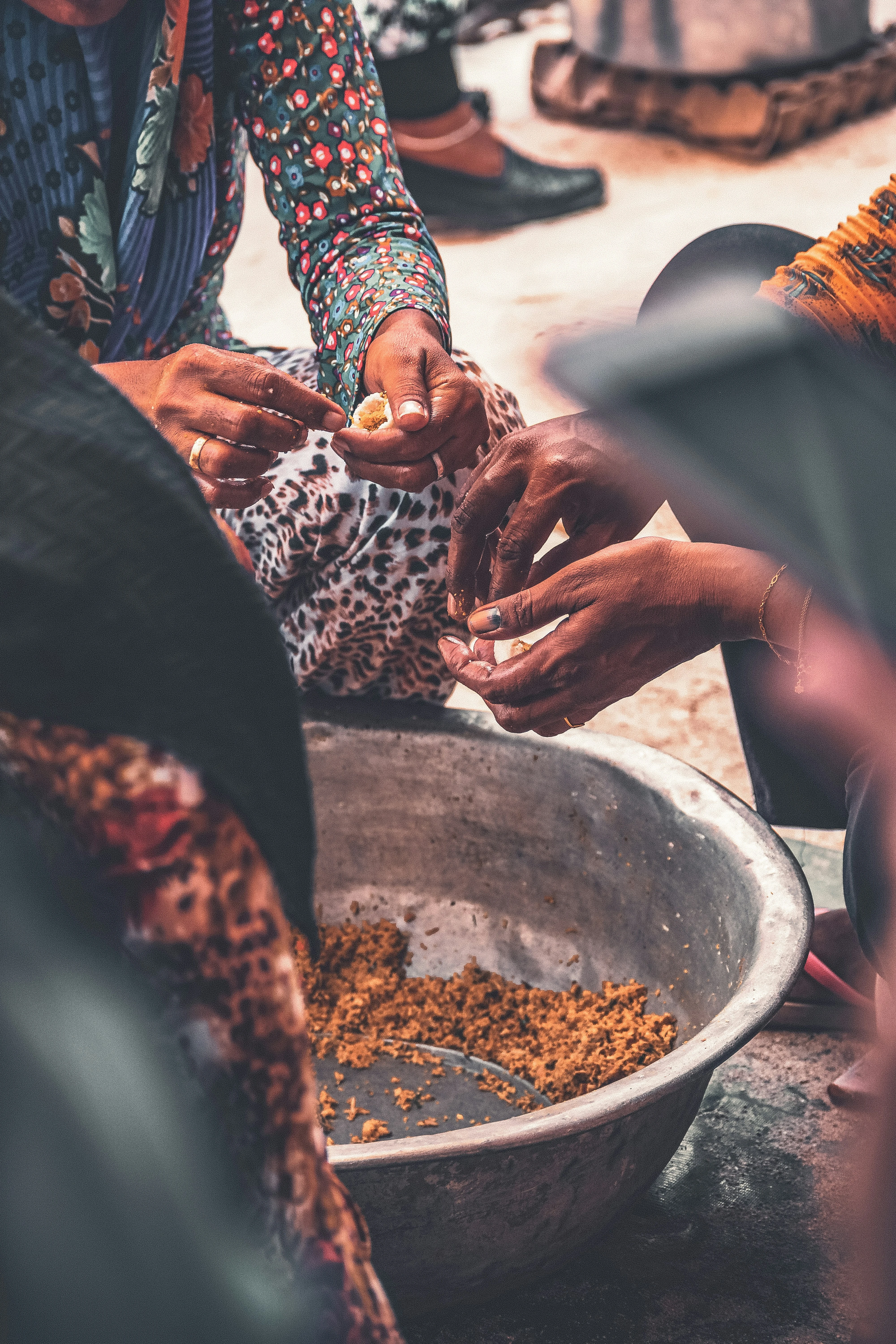
Dhangethi's culinary traditions revolve around seafood, coconut, and spices. Local specialties include hedhikaa (short eats), mas huni (tuna with coconut), and various fish curries that showcase authentic Maldivian flavors.

The traditional Maldivian drumming and dance performance known as Boduberu is still practiced on Dhangethi. Community gatherings often feature these energetic performances, especially during festivals and celebrations.
Life on Dhangethi follows a traditional pattern shaped by both practical necessities and religious observances:
Visitors are welcome to observe and respectfully participate in appropriate aspects of daily island life, providing a genuine cultural exchange opportunity.
What distinguishes Dhangethi is its strong sense of community and cooperation:
This strong community spirit extends to visitors, who are typically welcomed warmly and often invited to participate in local activities.
Dhangethi offers a growing selection of accommodation options that cater primarily to budget and mid-range travelers seeking an authentic island experience. While luxury amenities are limited compared to resorts, the personal service and cultural immersion provide a different kind of value.

Several family-run guesthouses offer clean, comfortable rooms with essential amenities including air conditioning, hot water, and Wi-Fi. These accommodations typically provide full-board packages that include three meals daily and can arrange excursions and activities.
Price Range: $35-65 per night
Popular Options: Dhangethi Inn, Ocean View Dhangethi, White Sand Lodge

A few slightly more upscale properties offer enhanced amenities, better furnishings, and more personalized service. These establishments typically feature larger rooms, quality dining options, and organized excursion services.
Price Range: $70-100 per night
Features: Premium furnishings, on-site restaurants, garden or sea views, tour services

Some accommodations offer beachfront rooms with direct access to the white sand beaches. These properties typically feature private terraces or balconies with sea views and are ideal for couples seeking a romantic yet affordable getaway.
Price Range: $80-120 per night
Features: Beachfront location, sea views, private outdoor spaces
Despite its traditional character, Dhangethi has developed basic infrastructure to support both its local population and growing tourism industry. While facilities are modest compared to larger islands, they provide the essentials for a comfortable stay.
The island has 3-4 small general stores selling basic groceries, snacks, beverages, toiletries, and some souvenirs. These shops are typically open from early morning until around 10:00 PM, with a break during prayer times.
There are 2-3 small local cafés serving Maldivian cuisine and simple international dishes. Most guesthouses have their own dining facilities for guests, often featuring fresh seafood and local specialties.
A health center with basic medical facilities and a resident doctor provides primary care. For serious conditions, evacuation to Male is arranged. A small pharmacy stocks essential medications.
There is no ATM on Dhangethi Island. Visitors should bring sufficient cash (US dollars or Maldivian rufiyaa) from Male. Some guesthouses accept credit cards, though they may charge a small fee for this service.
Most guesthouses offer Wi-Fi, though connection speeds can be variable. Mobile coverage is generally good with both Dhiraagu and Ooredoo networks. SIM cards can be purchased at the airport or in Male before arrival.
24-hour electricity is available throughout the island. Power outlets are UK-style three-pin plugs. Occasional brief power outages may occur, but most guesthouses have backup generators.
The island has a school providing primary and secondary education. For higher education, students typically travel to Male. Visitors interested in education can arrange to visit the school through their guesthouse (outside of class hours).
The island has a main mosque at its center. Visitors are welcome to view the exterior but should dress modestly and respect prayer times. Non-Muslims are not permitted to enter the prayer areas.
A football field and volleyball court serve as the main recreational areas for the island's youth. Informal matches are often played in the evenings, and visitors are sometimes invited to join in these friendly games.
A well-maintained harbor and jetty facilitate arrivals and departures. The harbor area is also where fishing boats dock and where many water activities begin. It's a social hub where locals gather in the evenings.
The island relies on groundwater and rainwater collection. Most guesthouses provide filtered drinking water. Bottled water is available in local shops, though visitors are encouraged to use refillable bottles to reduce plastic waste.
Basic waste management systems are in place, with growing awareness of environmental issues. The island has implemented waste sorting and is working to improve its waste management practices.
One of Dhangethi's greatest attractions is its pristine natural environment, featuring beautiful beaches and an exceptional house reef. The island's relatively undeveloped tourism industry means these natural treasures remain uncrowded and well-preserved.
Dhangethi has a designated "bikini beach" on the eastern side of the island, about a 10-minute walk from the center. This beautiful stretch of white sand allows tourists to wear Western-style swimwear. The beach features soft white sand, crystal-clear turquoise waters, and natural shade from palm trees. Unlike the crowded beaches of more popular islands, Dhangethi's bikini beach often provides a nearly private experience for visitors.
The island is surrounded by beautiful beaches, though visitors should note that modest dress is required on public beaches outside the designated bikini beach area. The northern beach offers excellent views of the lagoon, while the western beaches provide stunning sunset vistas that rival those of luxury resorts.
Dhangethi is renowned for its exceptional house reef, accessible directly from the shore at several points around the island. The reef is particularly vibrant on the eastern and southern sides, where snorkelers can observe a diverse array of marine life including colorful reef fish, rays, reef sharks, and occasionally turtles. The healthy coral formations provide habitat for numerous species and offer excellent snorkeling opportunities without the need for boat excursions.


The waters around Dhangethi Island offer exceptional marine biodiversity, making it a paradise for snorkelers and underwater enthusiasts:
The relatively low number of visitors means marine life is less disturbed and more abundant compared to heavily visited areas, providing exceptional snorkeling experiences directly from the shore.
Despite its small size and traditional character, Dhangethi offers a variety of activities that allow visitors to experience both the natural beauty of the Maldives and authentic island culture. Most activities can be arranged through guesthouses or local guides.


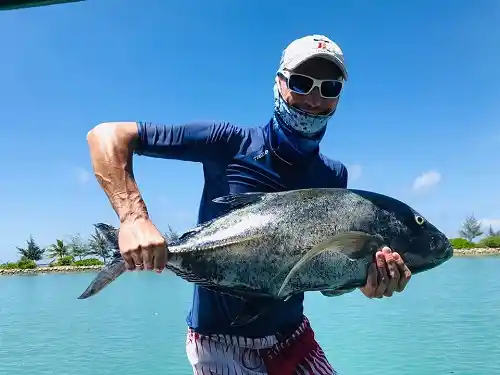
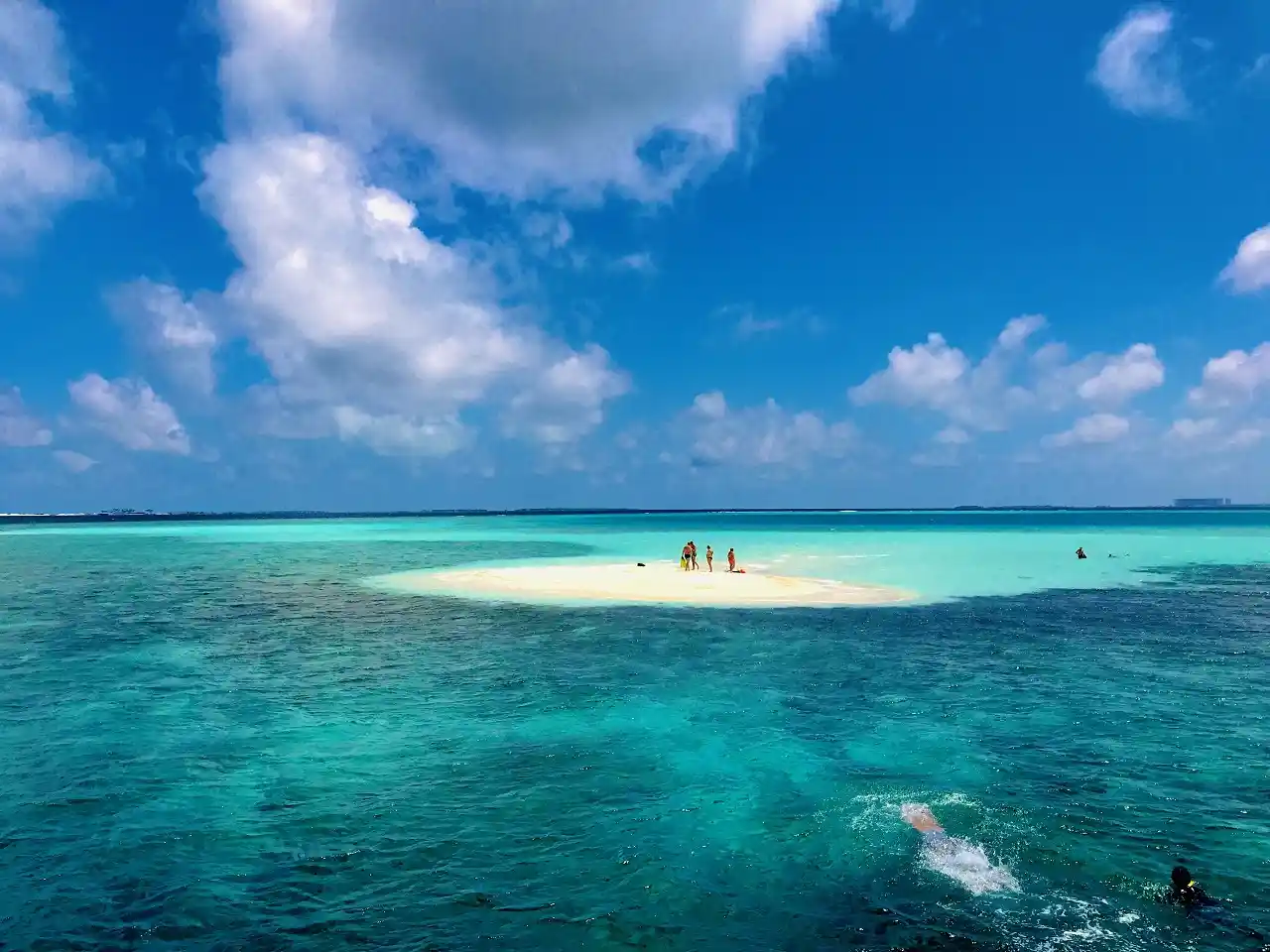

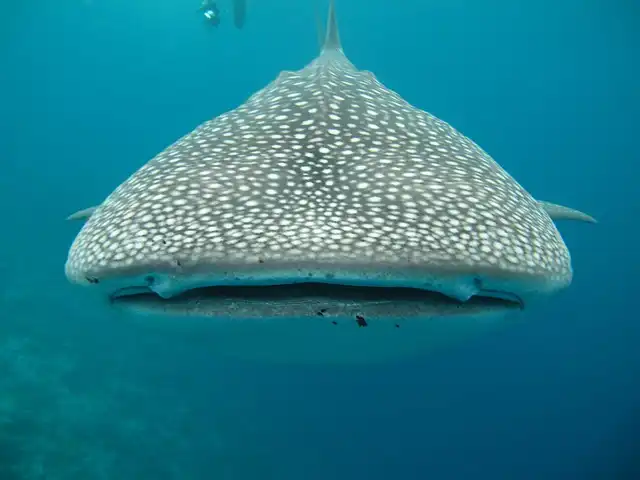
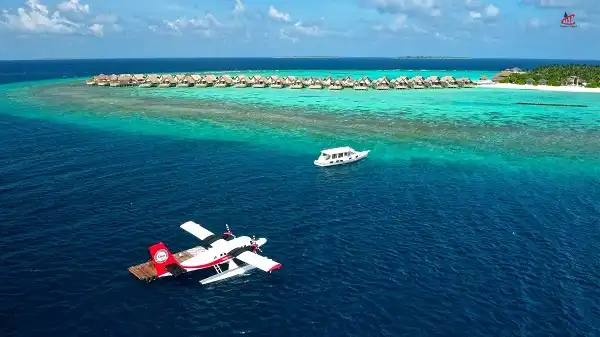
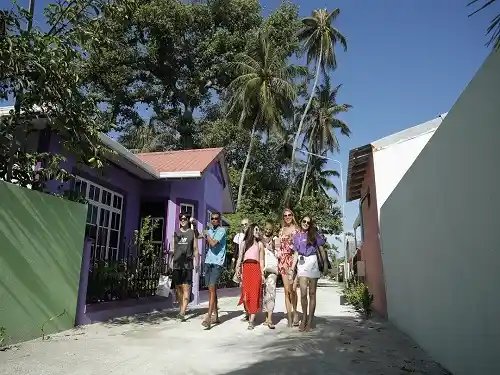
The heart of Dhangethi's charm lies in its close-knit community of approximately 800 residents. The island's population maintains traditional Maldivian customs and a way of life that has changed little over generations, offering visitors authentic cultural insights.
Life on Dhangethi revolves around fishing, small-scale agriculture, handicrafts, and increasingly, tourism. Many residents work in traditional occupations like fishing, boat building, and handicrafts, while others are involved in the growing tourism sector. The daily rhythm is influenced by the five daily prayer times observed in this Muslim community, with activity pausing briefly during these periods. The island follows a relaxed pace, with community gatherings in the evenings when the heat of the day subsides.
Dhangethi preserves many traditional Maldivian customs and celebrations. Religious festivals like Eid are important community events, while cultural practices such as Boduberu performances (traditional drumming and dancing) are still maintained. The island has a strong oral tradition, with stories and legends passed down through generations. Traditional crafts like rope making from coconut husks, boat building, and lacquerware production are still practiced by skilled artisans.
What makes Dhangethi special is its strong sense of community cooperation. Residents work together on island improvement projects, share resources, and support each other through communal activities. This cooperative spirit extends to visitors, who are often welcomed into community events and activities. The island maintains a traditional governance structure alongside official administration, with elders playing an important role in community decisions.
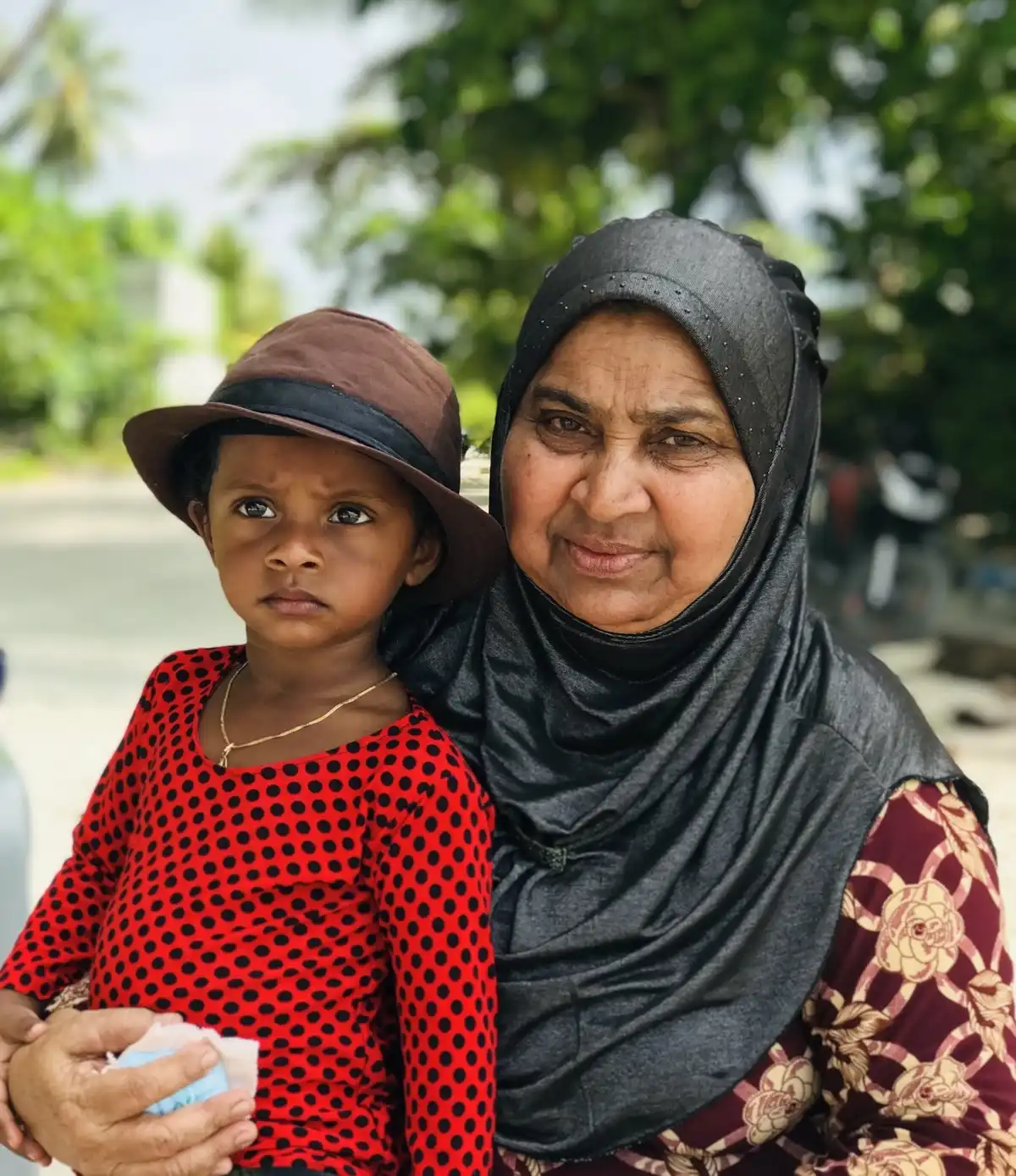
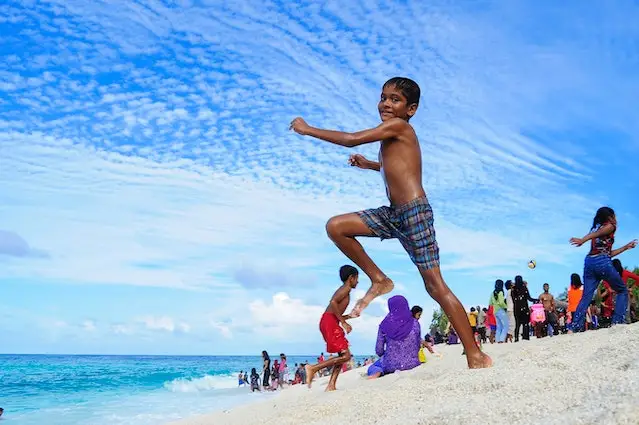
Hear what previous visitors have to say about their stay on Dhangethi Island:
Dhangethi was the highlight of our Maldives trip! We wanted to experience the real Maldives beyond the luxury resorts, and this island delivered perfectly. Our guesthouse was simple but clean and comfortable, with the most amazing home-cooked Maldivian food. The snorkeling right off the beach was incredible - we saw reef sharks, turtles, rays, and countless colorful fish just a short swim from shore. What made our stay special was the warmth of the locals - we were invited to join a community beach cleanup, learned traditional fishing techniques, and even participated in a local football match. The island has a peaceful, authentic atmosphere that's increasingly hard to find. If you want to experience genuine Maldivian culture and amazing marine life without the resort price tag, Dhangethi is perfect.
I spent a week on Dhangethi as a solo female traveler and felt completely safe and welcomed. The island has a wonderful community feel - everyone greets you with a smile and is genuinely interested in sharing their culture. My guesthouse arranged several activities including a traditional cooking class where I learned to make mas huni and other local dishes, a fishing trip where we caught our dinner, and a snorkeling excursion where I was lucky enough to swim with a whale shark! The bikini beach is beautiful and often empty except for a few other tourists. What impressed me most was how the island maintains its traditional way of life while still accommodating visitors respectfully. There's no nightlife or luxury amenities, but that's exactly what makes it special - it's authentic, peaceful, and connected to nature. The internet was surprisingly good too, which was important as I needed to work remotely occasionally. Highly recommend for travelers who want to experience the real Maldives.
Discover pristine beaches, vibrant marine life, and traditional culture on Dhangethi Island. Book your stay today for an unforgettable and authentic Maldivian experience.
Plan Your TripYou can reach Dhangethi Island from Male by public ferry or speedboat. The public ferry operates three times a week (Sunday, Tuesday, and Thursday), departing from Male at 9:00 AM and arriving at Dhangethi around 2:30 PM. The journey takes approximately 5.5 hours and costs about $3-5 per person. Speedboat transfers are faster (about 2.5-3 hours) but more expensive (around $50-60 per person) and can be arranged through your guesthouse or a travel agency. Some guesthouses also offer private transfers for a higher fee. It's recommended to book your transfers in advance, especially during high season.
The best time to visit Dhangethi Island is during the northeast monsoon (December-April), which generally provides the best overall weather conditions with less rainfall, lower humidity, and calmer seas. This period is ideal for snorkeling, diving, and beach activities. The water visibility is excellent during these months, making it perfect for marine life observation. The southwest monsoon (May-November) may have occasional rain showers but still offers many sunny days, fewer tourists, and lower prices. For whale shark sightings, the period from January to April is best. Water temperature remains warm (27-30°C/80-86°F) year-round, making Dhangethi a viable destination throughout the year.
Dhangethi stands out from other local islands in the Maldives primarily because of its authentic, traditional character that has been well-preserved despite growing tourism. The island is less developed than popular local islands like Maafushi or Thulusdhoo, offering a more genuine cultural experience. Dhangethi has an exceptional house reef accessible directly from shore, with abundant marine life including turtles and reef sharks. The island's location in Alifu Dhaalu Atoll provides proximity to famous dive sites and whale shark spotting areas. Additionally, Dhangethi is known for its strong fishing heritage and traditional craftsmanship, particularly boat building. The island is less crowded than more established tourist islands, meaning visitors often have beaches and snorkeling spots almost to themselves.
Yes, as Dhangethi is a local inhabited island with a Muslim population, visitors are expected to dress modestly in public areas. Both men and women should cover shoulders and knees when walking around the village, visiting shops, or dining in local restaurants. Swimwear (including bikinis) is only permitted at the designated "bikini beach" area on the eastern side of the island. When visiting the mosque or religious sites, women should cover their heads with a scarf. These dress code requirements are a sign of respect for local culture and traditions and are generally well-enforced on the island.
Dhangethi is renowned for its exceptional marine biodiversity, and snorkelers can expect to see a wide variety of underwater life directly from the beach. Common sightings include colorful reef fish (parrotfish, angelfish, butterflyfish, triggerfish, etc.), blacktip reef sharks, hawksbill and green sea turtles, eagle rays, stingrays, moray eels, octopuses, and various crustaceans. The house reef features healthy coral formations with both hard and soft corals. The island's location in Alifu Dhaalu Atoll also provides opportunities for excursions to nearby areas known for manta ray and whale shark sightings (seasonal). The relatively low number of visitors means marine life is less disturbed and more abundant compared to heavily visited areas, providing exceptional snorkeling experiences directly from the shore.